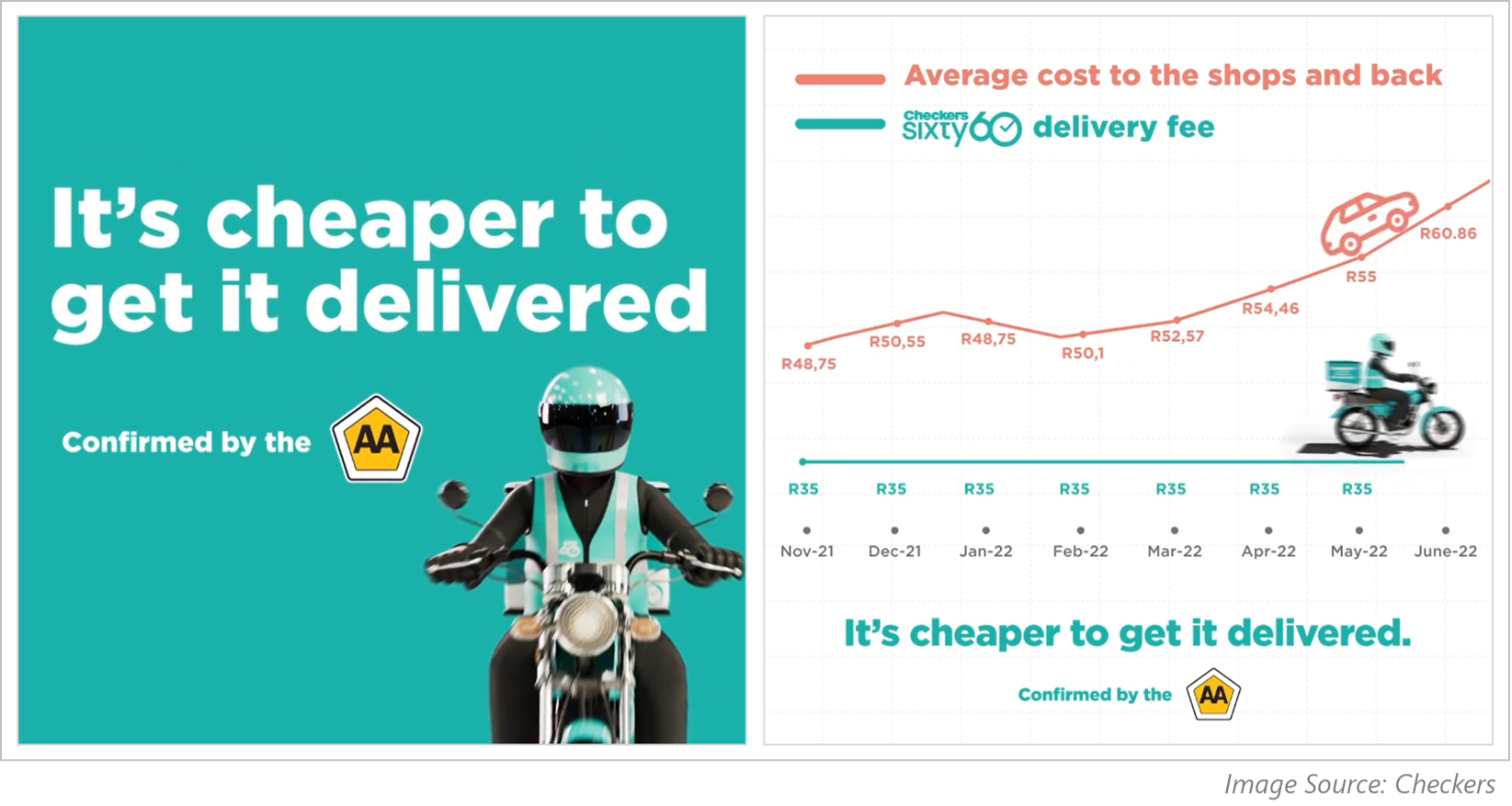Rising prices have been hogging the retail headlines lately, and while some might find it a welcome break from all the breathless commentary over the explosion of e-commerce during the worst of the pandemic, interestingly, it looks like the currently inflationary circumstances will feed rather than hinder the growth of e-commerce locally, particularly in the grocery segment.
We asked just under 900 online grocery shoppers how their grocery shopping habits were changing in response to rising grocery prices – if at all – and we gave them a list of options to choose from.
The first important finding is that only 2% said they are not changing their grocery shopping behaviour, i.e. 98% are making changes to how they shop for groceries. Wow.
The second is probably to be expected. The top three responses are to do with spending less – shopping around for specials, shopping at cheaper stores, and cutting back on non-essentials.
The third is that the number of online grocery shoppers who are going to do MORE online grocery shopping as a result of rising prices (34%) is greater than those who are going to do LESS online grocery shopping (11%). Three times greater, if you want to be dramatic about it.
So clearly there has been a big shift: from online grocery shopping as a convenient way to do your shopping to online grocery shopping as a money saver.

Checkers Sixty60’s AA-endorsed campaign around how the R35 delivery fee is less than what a shopper would pay in petrol for a quick drive to the shops probably has something to do with this. And while technically the saving applies to all online shopping providers (not just Sixty60), the fact that they own the lion’s share of the online grocery market should be giving them a nice little bump in sales, and has probably even attracted some new customers into their fold.
This tallies with another of our findings – that e-commerce is still on the rise locally. Another question we asked our respondents was whether they planned to do more, less or the same amount of online shopping going forward, fully expecting a big chunk to have reached saturation point and to choose the “about the same” option. We were wrong – 79% said they plan to shop online MORE going forward.
 This number was in the 70s or low 80s across all the demographic groupings we created (by age, gender, household income, etc.), but interestingly, it was highest among people living in a township (88%) and those living outside of the main cities (84%), which means that as the footprints of existing market players continue to grow, so will participation in this segment of the grocery market.
This number was in the 70s or low 80s across all the demographic groupings we created (by age, gender, household income, etc.), but interestingly, it was highest among people living in a township (88%) and those living outside of the main cities (84%), which means that as the footprints of existing market players continue to grow, so will participation in this segment of the grocery market.
Further, among a separate sample of 160 people who shop online but not for groceries, ‘only’ 62% said they planned to shop online more going forward, which suggests that it is online grocery shopping that will be the driving force behind local e-commerce’s growth.
This bodes well for the South African market, especially in light of news from the likes of the USA and UK that online retail sales are levelling off and, in some cases, showing declines either month-on-month or year-on-year.
In the UK, according to the latest IMRG Capgemini Online Retail Index, which tracks online sales for 200 retailers, May’s results represented a -0.6% dip month-on-month against April. However, despite widespread discounting, the Average Basket Value (ABV) has been rising since January 2022, reaching a new all-time high of £151. IMRG said this is likely due to a number of factors including inflation.
And so we circle back to the spectre we cannot escape – that of inflation.
For more on the subject of rising prices, click here.
For more – and broader – insights into the local e-commerce market, click here to learn more about the Trade Intelligence E-commerce Channel Report.
About Trade Intelligence
Trade Intelligence is South Africa’s leading source of consumer goods retail research, insights and training solutions, focusing on the industry’s corporate and independent retailers and wholesalers. We are the trusted voice of the sectors in which we operate, aggregating information to amplify knowledge, grow capability, and enable collaboration that drives profitable trading relationships and sustainable sector growth.

-2.png)